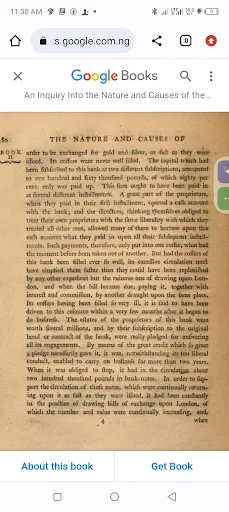The book traces the movement in the stock of money immediately after the civil war between the reconstructionist era of 1867 to Jim Crow and civil right era of 1960 .
The estimate of the stock of money takes into consideration to a greater extent during the period greenbacks that was used to finance the American civil war including subsidiary coinage and national bank notes beginning from the 1867 period in the upward trend about $585m worth of green backs currency.and $729m of commercial banking deposits a total 1,314b. that maybe by one definition be called money.It is very clear that the changing faces of the American economy and the financial system based on the historical growth of finances in the esoteric fugacity of time was saddle with the exclusive preserve to determine the nature of money in that giant economy .Obviously to be candid was left to the fringes of time to determine the proper definition of money as new emergent theories sewer in their palate always either to the worst or to the best all things being equal.Hear him the great Iconic Friedman himself ,he says ,"In addition the public held $276m.in deposits at the mutual savings banks or a total of $1,590m. of what by a broader definition may about as reasonably be called money."Even in the American economy up till date the barbarian- Americans including their giant thinkers could not tell nor solve the riddle what actually was money nor ever for once comprehensively digested to determine the true nature of money.How much worse for the western pundits and beyond. This classification however excludes the commercial banking deposits at this early time lacks any relevance whatsoever in the mould of either demand and time deposits had little meaning to banking parlance during the period."Reserve requirements for banks were leveled against deposit without distinction between demand and time." Both category of money paid interest and transferable by checks and was a major distinction to banks with evidence of reliable data after 1914 when federal reserve came into being.The federal Reserve act during the period created differential requirements for both categories and there was no estimate consequently for the third and narrower possible definition of money in the extreme category basically the currency plus demand deposit. ( page 4 of the book introduction).Infact with the discovery of new innovations over time they seem to worsen this porous intergrity in the basic grasp of this most mysterious item in social and economic life embellished with vague definition and warped direction of nature of the sacred item that could enabled universal prosperity with artless ease.Little wonder they claim inflation is the fundamental economic problem.They use the term money to include currency plus all deposits in commercial banks and reasons was debated in" Trend and cycles''.Now fastfowarded to the mid60s almost a century later change had barely come to this Macroeconomic erratic shore.Whence cometh the change when there was none? Practically none a full century later! The public held......$29billion of currency(consisting of mostly Federal Reserve notes but with appreciate residue of silver certificates and subsidiary coinage as well as a number of other relics of earlier monetary history ),$110billion of demand deposits and $67billion of time deposits in commercial banks or a total of $206b. of money by the terminology ."Moreover about$36billion were also held in other financial institutions like mutual savings banks making a total of $242billion of money plus s uch deposits.As he surveyed in the chart 1 that" the public held 50 times as many dollars of currency at the end of 93 years spanned by our figures as at the beginning ; 243 times as many dollars of commercial bank deposits. ; and 127 times as many dollars of mutual savings deposits. American monetary movement cycled 157 times for almost a century .




No comments:
Post a Comment